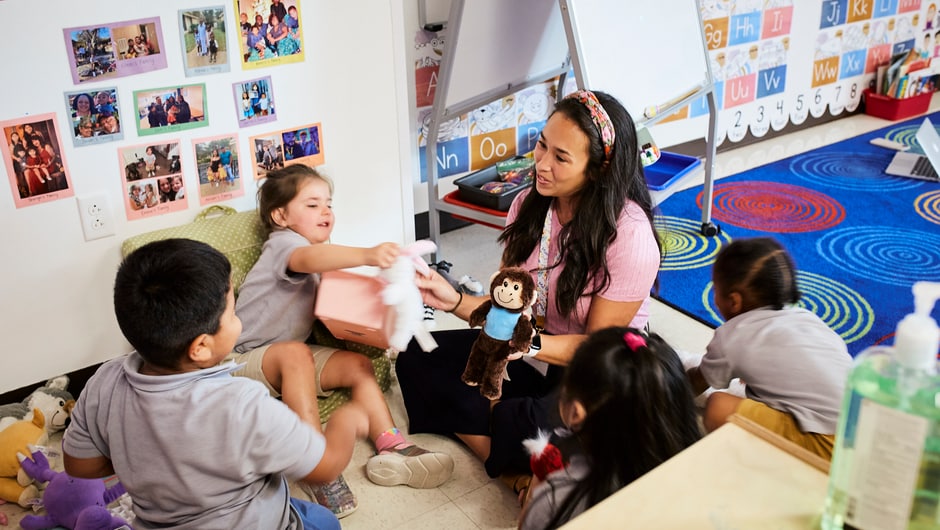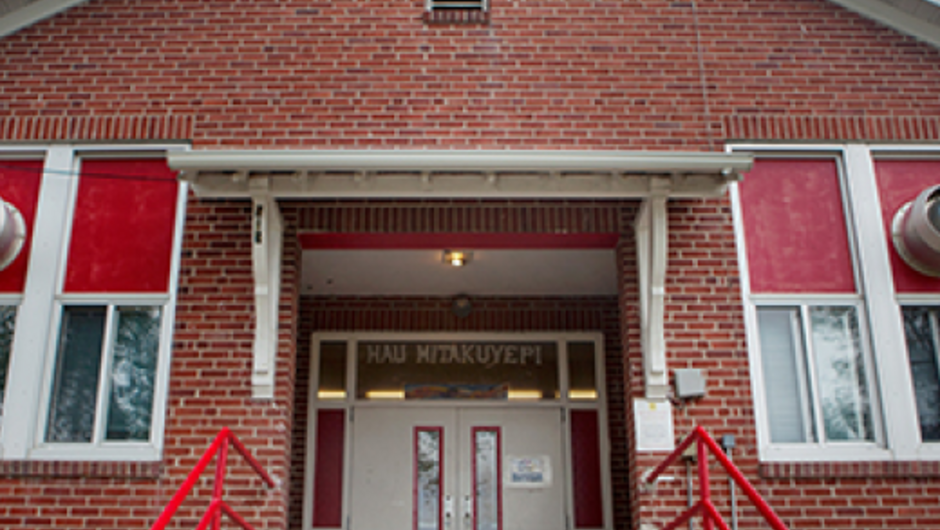Finding Their Voices In English And Spanish
A corps member and her students dig deeper in a memoir writing class.
It wasn’t her choice to go by “Allie.” But Alejandra Cordoba (Washington ’15) remembers a teacher saying the nickname would be easier for everyone to pronounce.
This judgment has no place in a culturally responsive classroom, and Alejandra uses it as a prompt for her writing students at Hilltop Elementary in south suburban Seattle.
Alejandra leads a fifth-grade dual language classroom. She teaches in English, uses Spanish to build vocabulary and make student connections, and weaves cultural literacy lessons throughout.
Why was it important for you to teach in a dual language school?
I am Mexican-American, and my first language is Spanish. I grew up in the Southwest, sometimes feeling ashamed of my culture and feeling different. I don’t want my kids to feel that way. So, I try to integrate language and culture into my everyday instruction, and I use myself as an example of what is possible when you hold onto your true self.

Can you give me an example?
We had a memoir writing unit. One thing I knew was that I did not want to read a bunch of summer vacation essays. So, I shared a few tidbits about my life—like the first time a teacher changed my name from Alejandra to Allie, and how from that point on I was Allie at my elementary school. Back then I was okay with it, but as an adult, I look back and question the effect that had on my identity. I find that when I share something personal, it allows my students to open up and think and talk about experiences, too. And it allows me to guide them through their emotions and feelings at the same time I teach writing skills.
How did your students respond to the memoir unit?
I am really proud of my students. I had one student, in particular, who talked a lot about her dad being deported. She wrote a lot about it, the mechanics of it, but she never talked about her feelings or the future implications for her family. This unit was the moment for her to dig a little deeper and get real with her issues, to discover what happened and what she can do about it. I feel like it’s more impactful that way—to give them the skills and then educate them on how to search for their voice and make their voice heard.
You’ve shared two essays with me, and we can hear now directly from the authors, Daniela and Estefania. Daniela, can you tell me how you approached the memoir essay and what you got out of it? You touch on your family’s connections to Mexico and Spain.
I tried to think of the things that bothered me, like how I was losing my culture, and the events that lead to that, and some of the important things that highlight parts of my life. After I wrote about it, I realized I would still be the same person, even if I grow up to be a little bit different. My background story will always be the same.
Estefania, you chose to write about how you felt on your first day of school when were sorted into a separate class from your cousin. Why did you choose this topic and what did writing about it do for you?
The first time it happened to me, it was an important time. I had never experienced going to school. I had always been with my cousin. I never knew she could be in a different class. The essay helped me make more sense of it and think about other people.
Ms. Cordoba, I can see why you are proud of your students. What should we take away from this lesson and their reflections?
That we should always consider a student's point of view. Children are very insightful and have much to say about their experiences. Many of the students are fighting battles that as adults we are still learning how to confront. My hope is that students learn about themselves through academics and use their new understandings to become better citizens in our communities.
What message would you send to people considering joining Teach For America Washington?
If you are passionate about this work, you need to give it more than the bare minimum requirements. It’s not a joke. Please come, work hard, be supported by a community of other TFA members and know everything you do has an impact. Our goal is to leave a positive impact.
Through Alejandra's writing workshop, students find their voice and identity. Read two short memoirs from students who share personal reflections about their lives.
Sign up to receive articles like this in your inbox!
Thanks for signing up!
Content is loading...







